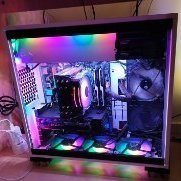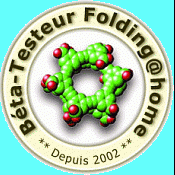Les sources Qwen3-TTS: https://github.com/QwenLM/Qwen3-TTS Je suis sous Debian 13 Trixie Sur un portable Intel (Core-i3 6100U) Méthode: Créer un répertoire, un venv et l'activer mkdir ~/Projets/Qwen3 && cd ~/Projets/Qwen3 python -m venv . source ./bin/activate Installer les dépendances pour les exemples Qwen, mais en remplaçant torch et tensorflow par la version CPU pip install torch torchvision torchaudio --index-url https://download.pytorch.org/whl/cpu pip uninstall -y tensorflow && pip install tensorflow-cpu pip install -U qwen-tts NE PAS INSTALLER flash_attn! Adapter les exemples qui sont liés à une device "cuda:0" et à flash_attn. Replace bfloat16 par float peut aider. Dans les codes sources proposés par Alibaba, remplacer: device_map="cuda:0" par device_map="cpu" dtype=torch.bfloat16 par dtype=torch.float (perfs x2 :) ) supprimer attn_implementation Exemple: AVANT model = Qwen3TTSModel.from_pretrained( "Qwen/Qwen3-TTS-12Hz-0.6B-Base", device_map="cuda:0", dtype=torch.bfloat16, attn_implementation="flash_attention_2", ) APRES model = Qwen3TTSModel.from_pretrained( "Qwen/Qwen3-TTS-12Hz-0.6B-Base", device_map="cpu", dtype=torch.float, # attn_implementation="flash_attention_2", ) Il y aura un petit avertissement certainement concernant AVX2/FMA, pour le faire sauter il faudra recompiler tensorflow avec le support de ces instructions,














